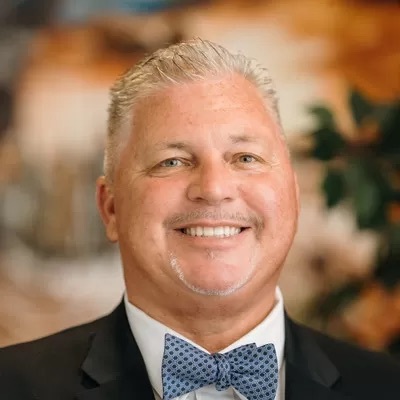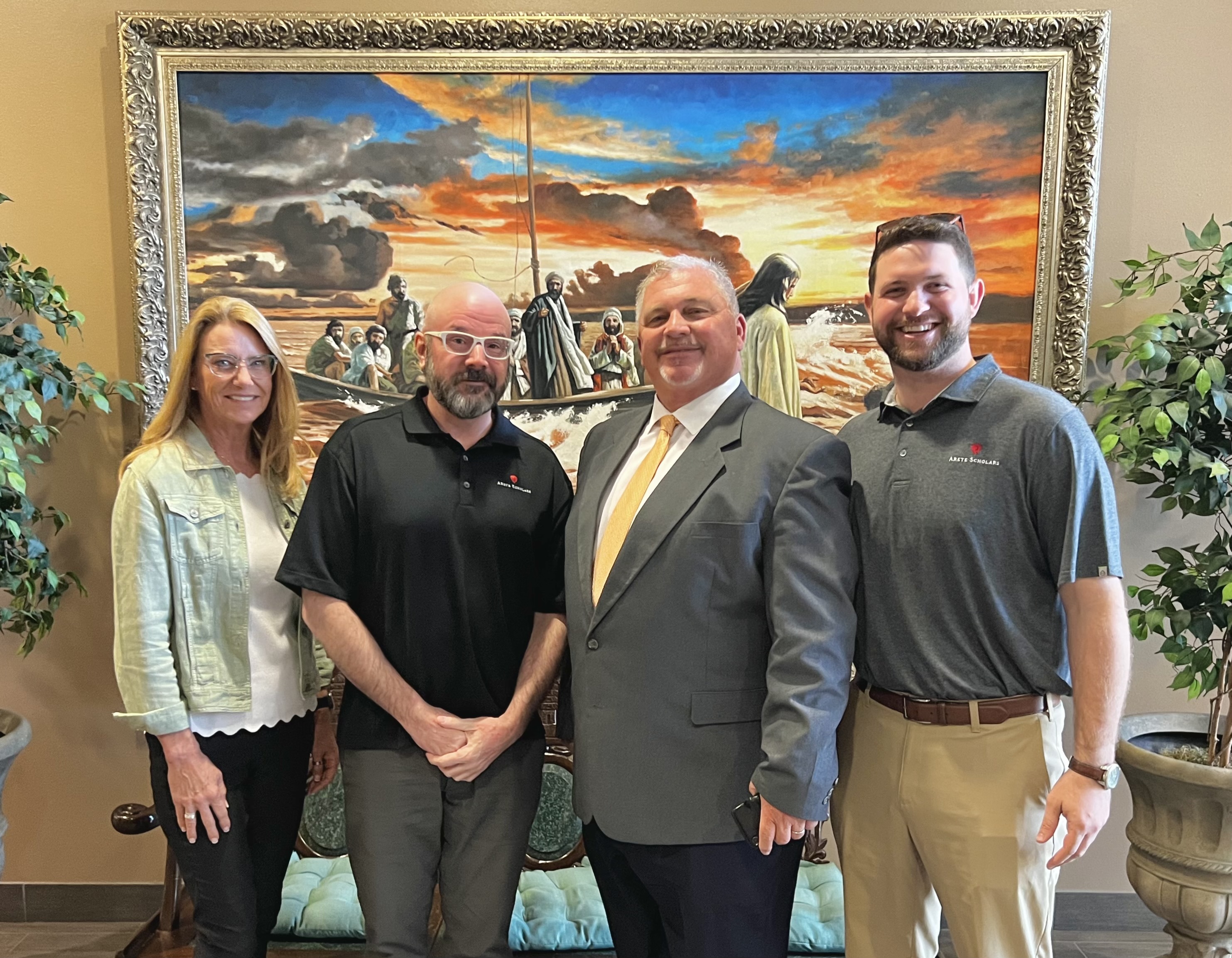September 20th, 2024 | Schools & Faculty
Overcoming Obstacles and Creating a Road Map for Living a Good Life
The cities of Houma and Thibodaux, located southwest of New Orleans, sit firmly in the heart of the Bayou region, a unique and culturally rich part of Louisiana. Houma gets its name from the Houma people, a historic Native American tribe that once called the bayous and waterways of south Louisiana home. A short drive north sits Thibodaux, which today serves as the parish seat of Lafourche Parish. Over the centuries, many cultures settled and re-settled along the bayous, seeking opportunity and prosperity in the sugar cane, seafood, and oil industries.
"This is what we call real Cajun country," says Dr. Mark Williams, who serves as Superintendent of the Catholic Diocese in Houma-Thibodaux.

Dr. Mark Williams
As a former principal at Archbishop Shaw High School in Marrero, Louisiana, Dr. Williams has held a deep passion for educational excellence throughout his career. Today, he brings that commitment to the Diocese of Houma-Thibodaux, where, as superintendent, he oversees its ten schools and nearly 5,000 students. Thanks to a partnership with Arete Scholars, this commitment is being bolstered as he works to empower parents to place their underserved and marginalized children in schools that best suit their unique gifts and learning needs.
It's a responsibility he does not take lightly, especially as the region continues to rebuild following Hurricane Ida's aftermath. On August 29, 2021, Ida, a Category 4 storm, made landfall, carrying sustained winds of 150 miles per hour. Ida significantly damaged much of the infrastructure along the coast of southeastern Louisiana, leaving over 1 million homes and businesses without power across Louisiana and Mississippi.
"I would say that's our biggest struggle in this region," Dr. Williams shares. "Ida made a direct hit here with the eye of the hurricane passing over three of our schools. It was devastating for us."
Hurricane Ida would become the second-most damaging hurricane to hit the state of Louisiana since Hurricane Katrina in 2005. When the wind, rainfall, and tidal surge finally subsided, the storm had caused more than $75 billion in total damages and losses.
"In our diocese alone, including our churches and schools, we sustained $150 million in damage," he says. "The people in this region got smacked, and that's become the primary struggle—rebuilding our communities and a sense of normalcy in the aftermath of the storm."
"We continue to live with repercussions to this day," he continues. "It's been slow and very costly, but we're getting there."
Due to the catastrophic storms common to the Bayou region, many insurance companies find it too costly and risky to continue doing business there. This has created less competition, driving costs upward for the average home and business owner. Many who live close to the coast struggle financially as their insurance expenses have increased exponentially.
"People here have to say, okay, what will it be this week," Dr. Williams says. "Are we going to pay the property and casualty insurance, or do we pay our child's private school tuition? That's where many people find themselves, and it's one of our real challenges."
Despite this adversity, Dr. Williams and the nearly 450 administrators, faculty, and staff of the Diocese of Houma-Thibodaux are committed to the students they serve. Educational excellence and the rigorous intellectual and academic preparation necessary to achieve it are of foremost value as they seek to prepare the whole person—mind, body, and soul. With an eleven-to-one teacher-student ratio, these Catholic schools provide personal attention to students and families as they construct a safe and structured learning environment.
Fortunately, they are not alone. With Arete Scholars as a partner, the ten schools operated by the Diocese are committed to training intellectually and morally forming young people throughout the community.
"After the hurricane, people were evacuated and scattered everywhere," Dr. Williams says. "I can't even begin to tell you how much of a mess it was. But now, enrollment in our schools is up for the second straight year, which tells me people are coming back."
"And we're thankful for partners like Arete," he adds. "People who fall below 250% of the federal poverty limit—who are still struggling to put their lives back together—they want to choose a private Catholic school for their kids. They can apply for an Arete scholarship, which allows them to make their own choice as to where they send their kids."
A core belief of the Catholic Church is that parents are the primary educators of their children. To Dr. Williams' delight, many families are choosing to send their children to one of the Catholic schools run by the Diocese of Houma-Thibodaux.
"Parents have this extraordinary responsibility to educate their children," Dr. Williams says. "They should be able to choose where to send their child to school, and money should not be a limiting factor."
"I'm so grateful that Arete Scholars makes a private, Catholic school education possible for so many families," he adds.
Dr. Williams is insistent on the benefits of educating a child at one of the Diocese's schools.
"In the Catholic Church, we believe that there's a road map for living a very good life," he explains. "That road map is the Gospels of Matthew, Mark, Luke, and John. All those parables and stories give our teachers and parents a roadmap on how to model a good life for the kids and, ultimately, it gives the kids the roadmap on how to grow up to be good people."
"The purpose of Catholic schooling, when it comes down to it, is to build great citizens," he says. "It's to build virtuous young people and virtuous adults who are men and women for others, who care about their community."
It is thanks, in large part, to its partnership with Arete Scholars that the Diocese of Houma-Thibodaux continues to fulfill its mission to serve the community and its people by providing a solid Catholic education for students whose parents would otherwise be financially unable to afford to enroll them in a private school.

Dr. Williams with members of the Arete Scholars team.
"I just go back to choice and access," Dr. Williams shares. "The gospels, which I referred to, say very plainly that everyone is made in the image and likeness of God. We are all unique, and everyone—all human beings—must be treated with dignity and respect. And so, at the end of the day, we believe that Arete provides everyone the same educational and life-formation opportunities, regardless of income level."
"Running good schools is very expensive, but offering a quality Catholic education to everyone is special," he adds. "We could not fully achieve our mission without the help of Arete Scholars and what they do for so many underresourced people in our communities."
